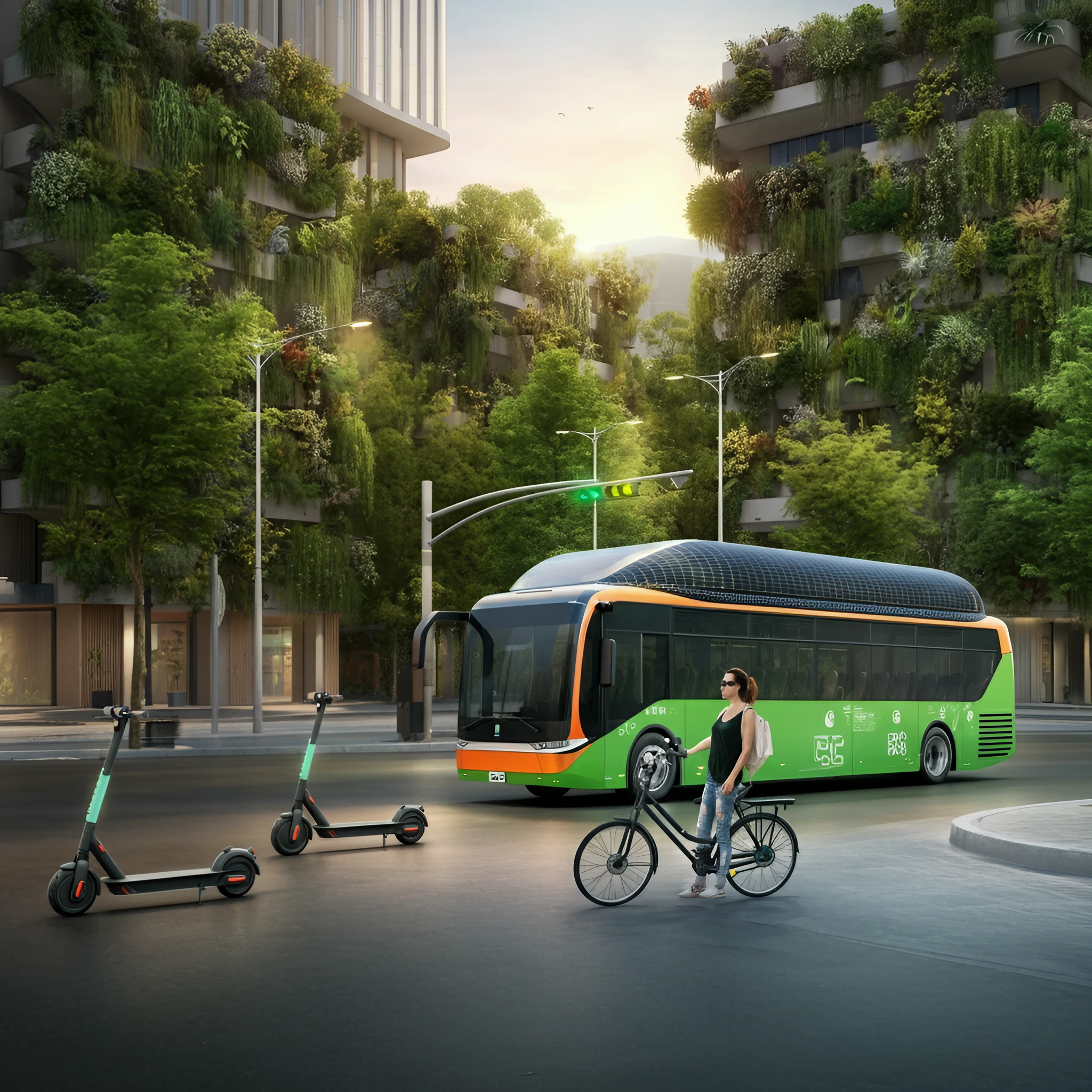Eco transportation is driving the future of how we move from one place to another. With growing concerns over climate change and rising pollution levels, the need for environmentally friendly alternatives to traditional transportation has never been greater. But eco transportation isn’t only about reducing emissions—it’s a powerful way to improve urban living, promote health, and save resources.
If you’ve wondered what eco transportation is, how it can benefit you, and where it’s headed, this article has everything you need to know.
What is Eco Transportation?
Eco transportation refers to methods of travel designed to minimize environmental impact. These modes of transport, whether using renewable energy, reducing reliance on electricity, or promoting physical activity, offer solutions to the challenges posed by traditional fossil fuel-driven vehicles. Options like electric cars, public transit, cycling, walking, and carpooling represent the growing movement towards greener ways to commute.
Benefits of Eco Transportation
Adopting eco-friendly transportation solutions brings a wealth of benefits. Here are some compelling reasons to make the switch:
- Reduced Carbon Footprint
Eco transportation significantly lowers greenhouse gas emissions. Electric vehicles and renewable energy-powered transit options drastically cut dependency on fossil fuels, contributing to a healthier planet.
- Improved Air Quality
By reducing the reliance on vehicles with internal combustion engines, eco transportation minimizes air pollution, benefiting everyone’s health, particularly in urban settings.
- Healthier Lifestyles
Active modes of transportation like walking and cycling not only reduce emissions but also improve physical fitness and mental well-being.
- Cost Savings
While the upfront costs of some eco-friendly solutions (like electric cars) may seem high, they offer long-term savings through reduced maintenance and fuel expenses.
- Less Traffic and Congestion
Initiatives such as carpooling and smarter public transport systems mean fewer cars on the road, leading to smoother commutes for everyone.
Examples of Eco Transportation
Eco transportation is evolving quickly, offering a range of sustainable options for communities everywhere:
- Electric Vehicles (EVs)
With zero tailpipe emissions and advancements in battery range, EVs like the Rivian California Dune, Toyota C-HR+, and Volkswagen ID. EVERY1 are reshaping personal transportation. Accessible and stylish, these vehicles offer eco-conscious drivers a compelling alternative.
- Public Transportation
Urban transit systems are incorporating electric and hybrid buses, bullet trains like the E10 Shinkansen, and sustainable solutions to make daily commutes more efficient and emission-free.
- Cycling and Walking
Super commuter e-bikes like the Specialized Vado SL 2 and compact city bikes from Heybike are modern tools for eco-conscious urban commuters. Walking remains timeless as a zero-emission, healthy alternative for short distances.
- Carpooling Initiatives
Pioneered by platforms like Waze Carpool and BlaBlaCar, carpooling is reducing single-occupancy vehicles on roads, lowering emissions, and making commutes more social and cost-effective.
- New Innovations
From three-wheeled micro EVs targeted at urban markets to futuristic electric motorcycles like the Ultraviolette Shockwave, innovation is opening up exciting ways to travel more sustainably.
Future Trends in Eco Transportation
Sustainable travel is on a fast track to becoming smarter, more accessible, and more innovative. Here are some groundbreaking trends reshaping the industry:
- Autonomous Electric Vehicles
Self-driving EVs are set to revolutionize transportation by combining renewable energy with artificial intelligence to improve efficiency and safety.
- Advanced Battery Technology
New developments in lightweight, long-lasting batteries are enhancing EV performance and affordability, putting them within reach of more consumers.
- Smart City Mobility
Urban city planning is being transformed with eco transportation hubs, better cycling lanes, and seamless integration of public and private transit options.
- Eco-Friendly Air Travel
Hybrid-electric seaplanes and sustainable aircraft design are propelling aviation toward reduced emissions for short-haul and long-haul flights.
The future of eco transportation promises a cleaner, smarter, and more enjoyable travel experience for all.
Government and Community Initiatives
To make eco transportation mainstream, governments and local communities are introducing policies and incentives that support green mobility. Some examples include:
- Tax Credits for EVs
Countries like the US offer tax incentives for purchasing electric or hybrid vehicles.
- Bike Share Programs
Cities like Amsterdam and Montreal have thriving bike-sharing networks, saving tens of thousands of car trips annually.
- Low-Emission Zones (LEZs)
Several European cities restrict high-pollution vehicles in certain areas, encouraging the use of cleaner alternatives.
- Community-Led Carpooling Campaigns
Community groups and companies set up programs that incentivize carpooling to reduce individual commute footprints.
How You Can Contribute
Want to play a role in the green mobility movement? Here are some easy ways you can help:
- Start by switching to eco-friendly options like biking or public transport for your commute.
- Explore incentives in your area, such as EV rebates or bike subsidies.
- Support businesses that champion sustainable travel and transportation products.
- Share your eco transportation experiences with friends and online communities to inspire others.
Together, We Can Drive Change
Eco transportation is more than just a trend. It’s a commitment to a sustainable and healthy future. By making conscious transportation choices, you can positively impact the environment, your health, and your wallet.
Tell us in the comments below – what steps are you taking to incorporate eco-friendly transportation into your life? Have an innovative idea to share? We’d love to hear about it!








